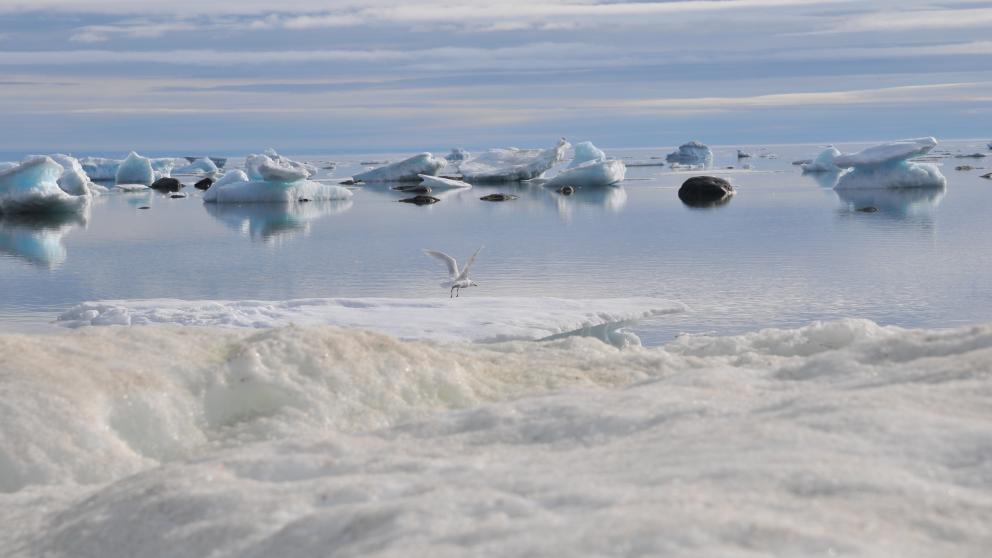German Foreign Office Appoints Arctic Expert Kathrin Keil to German Observer Delegation of the Arctic Council
17.03.2015

The Arctic is particularly susceptible to radical change. This is because temperatures there are rising twice as fast as those in other parts of the world, and Arctic sea ice has been melting at an unprecedented rate for several years. Founded in 1996, the Arctic Council promotes the sustainable development of Arctic regions and environmental protection, taking the interests of all Arctic inhabitants into account. It is an intergovernmental forum of the eight countries bordering the Arctic (Denmark (Greenland), Finland, Iceland, Canada, Norway, Russia, Sweden and the United States) as well as six organisations of indigenous Arctic peoples, which take part in all Council meetings as permanent participants and are actively integrated into all the Council’s activities. In addition, twelve non-Arctic states have observer status on the Arctic Council.

Working Group Promotes Sustainable Arctic Development
Germany has had observer status since the foundation of the Arctic Council. As of March 2015, IASS researcher Kathrin Keil, an expert on the Arctic, will join the German observer delegation at meetings of the Arctic Council’s Sustainable Development Working Group. In this new role Keil will benefit from experiences gained at the IASS, where she heads the SMART (Sustainable Modes of Arctic Resource-driven Transformations) project together with Ilan Chabay.
The Sustainable Development Working Group is one of six Arctic Council working groups responsible for the Council’s main activities. These working groups aim to:
- develop proposals and concrete steps to support the sustainable development of the Arctic
- improve the environmental and economic conditions and protect the cultures and health of indigenous peoples and other inhabitants of the Arctic
- improve the overall environmental, economic and social conditions of the Arctic’s population.
In the light of increasing overlaps between Arctic and non-Arctic processes and actors, the unique governance structure of the Arctic Council – with Arctic states, permanent representatives and non-Arctic observers – bodes well for the future. As a member of the German observer delegation, Kathrin Keil can bring her expert knowledge on the Arctic to bear on the Council’s work, in particular the research undertaken for the SMART project at the IASS.
IASS Researchers Study Air Quality and Climate Change in the Arctic
The interdisciplinary SMART team investigates challenges of and opportunities for sustainable Arctic development. The impact of air pollutants, in particular soot, on air quality and climate change in the Arctic is a primary focus of its work. Air pollution must be seen in the context of the increased economic activity in the Arctic that the exploitation of energy resources and new shipping routes are expected to bring. Previously understudied interdependencies between Arctic and non-Arctic processes and actors are particularly important in this regard. For example, the lion’s share of air pollutants in the Arctic originates outside the region, and demand from Europe, America and, increasingly, Asia will determine future resource exploitation in the Arctic. Hence SMART also conducts research on existing and possible future governance structures at various levels and explores how Arctic stakeholders from the region and beyond can work together towards a sustainable transformation of the Arctic.
17.03.2015